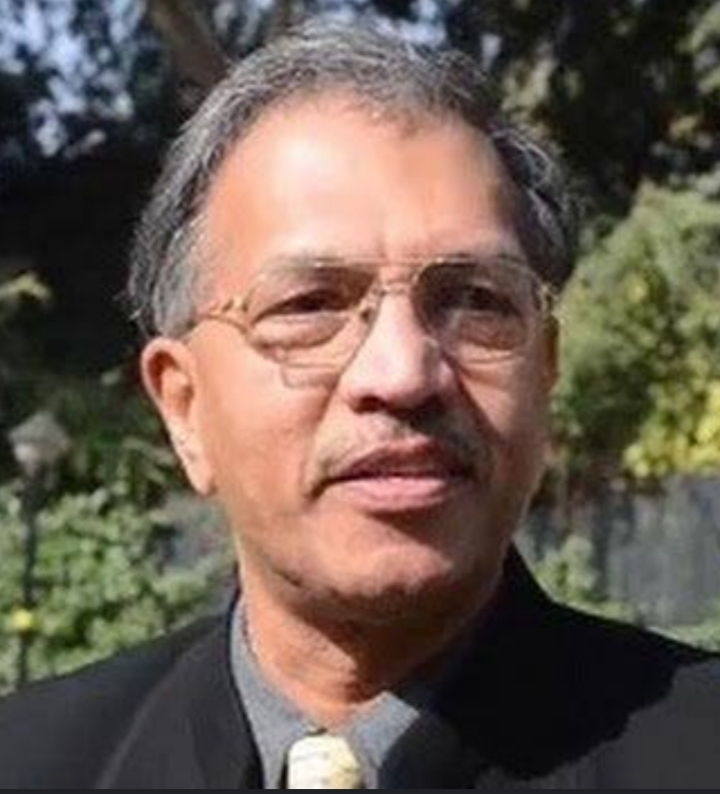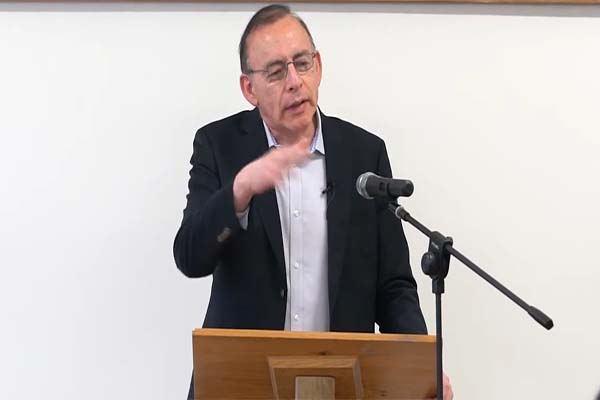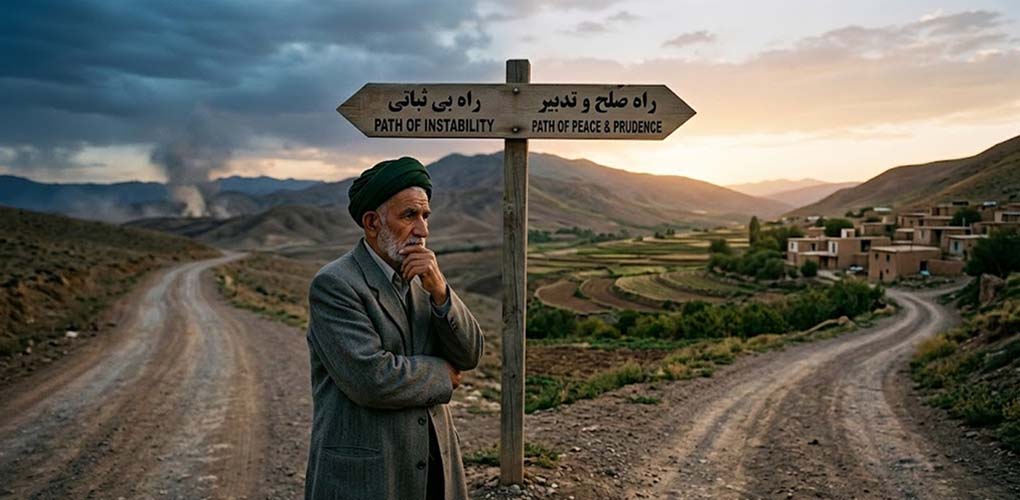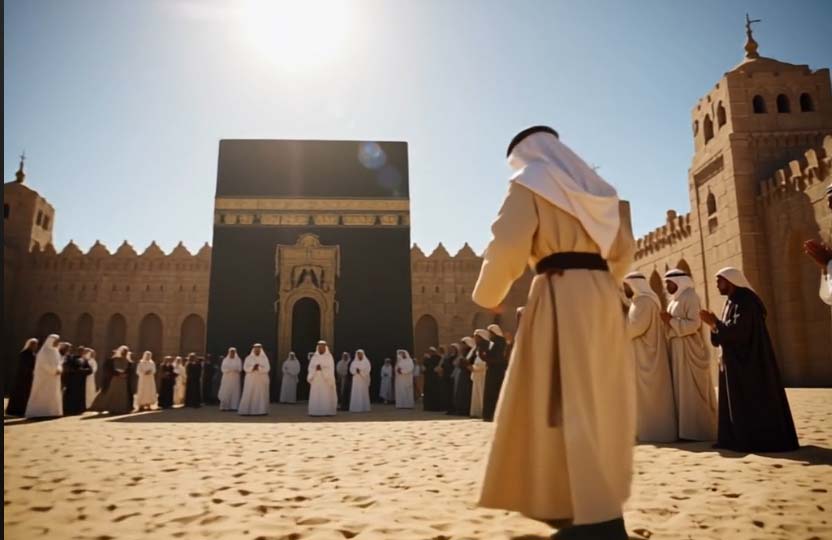
 Dr. A. K. Merchant*
Dr. A. K. Merchant*
There is an interesting and relevant debate at the United Nations, as the largest civil society organization of the world commemorates its 80th anniversary of establishment on 24th October 2025. There is a view that the United Nations is an inefficient bureaucracy, large, fragmented, overextended in many ways and that this is hampering its ability to be responsive to the needs of its members, particularly at a time when humanity faces a range of global catastrophic risks to its collective future. The United Nations must address head-on a whole range of structural inefficiencies that undermine its credibility, but that “reform” must go well beyond “doing more with less.” The United Nations must, in fact, go back to its original mandate and its members must ask themselves what the United Nations is for and then frame the United Nations@80 reforms so that the United Nations does not have to solve 21st-century problems with 20th-century financing and a mid-century operating model.
Despite all of its obvious shortcomings can United Nations confront the cascading global risks—climate change acceleration, unsustainable debt burdens, persistent poverty and inequality, pandemics, and wars that kill hundreds of thousands annually at a time when the overall income is shrinking fast: from USD74.6 billion (2022) to USD67.6 billion (2023) and, by the best projections, sliding toward USD50 billion, roughly 2015 levels. This contraction, coinciding with surging needs, will translate into tens of millions of people left without essential support.
The United Nations@80 Initiative rightly spotlights real management problems: a sprawling system of 140+ entities, 4,000+ offices, and 100+ departments / operations, operating under 40,000+ resolutions and mandates, many outdated or duplicative. Servicing 27,000 meetings a year at a cost of USD360 million is emblematic of a machinery overly organized around process. There is duplication across peace and security, development, humanitarian, and human rights functions; incentives that reward siloed fundraising; and a mandate landscape that is bloated and often misaligned with 21st-century realities.
All of that merits action. But if United Nations@80 becomes mainly a hunt for administrative efficiencies, it will become a missed opportunity. The deeper crisis is structural: the United Nations’ financing model is broken and its founding Charter commitments—on disarmament and collective security—remain unfulfilled. Unless Member-States tackle both, efficiency improvements will amount to rearranging the wiring in a house with an unreliable power supply.
As of 2025, the United Nations has over 600 multilateral treaties deposited with the Secretary-General. The real problems in fulfilling many of the declarations and conventions are precarious funding and hegemonic geopolitics, and lack of instrumentalities for enforcement.
Today’s United Nations revenue mix is dominated by voluntary earmarked contributions (about 61% in 2023), vastly outweighing assessed and core resources. This skews priorities toward donor preferences, weakens General Assembly authority under Article 17, fragments programming, and generates stop-go cycles that erode effectiveness and trust. A small group of wealthy states supplies the bulk of earmarked funds; many others contribute negligible amounts and, unsurprisingly, feel disengaged from the United Nations´s work.
Meanwhile, the largest contributors—those facing domestic fiscal pressures and rising debt—are least likely to inject fresh, predictable funding. When budgets tighten, foreign assistance is often the first cut, as we have seen recently among Overseas Development Assistance donors. Left unchanged, the current model is a recipe for recurrent liquidity crises and widening legitimacy gaps.
Reform of the United Nations should begin with the question of what the United Nations is for and then go on to the challenge of how to finance it accordingly. That means three moves: (i) Stabilize and depoliticize the revenue base. (ii) Re-center governance and accountability in deliberative organs (General Assembly for now and, under a Second United Nations Charter, eventually a Parliamentary Assembly). (iii) Recommit to the Charter’s unfinished core: disarmament and enforceable collective security. Without these, efficiency gains will be marginal at best and easily reversed at the first political headwinds.
From India’s perspective: Whether it was Prime Minister Nehru’s policy of ‘Friendship for All, Malice towards None’ adopted in 1947 or three quarters of a century later, Prime Minister Modi administering the Mantra of ‘Vasudhaiva Kutumbakam: One Earth One Family One Future’ to the world community at the G20 Summit in New Delhi, there was an echo in them of India’s distant past, of its millennial belief in the unity of all existence. Prime Minister Modi’s clarion call a decade ago at the United Nations General Assembly to unite humanity through the universal practice of Yoga and through it to ensure a balanced physical, mental and spiritual development of all humanity also harks back to that past. Similarly, the Directive Principles of India’s State Policy as laid down in India’s Constitution have unmistakably drawn their inspiration from that past. India’s diplomacy derives itself from the fundamental premise of India being a Democratic and Secular Republic by its very Constitution which, in turn, is rooted in the highest value of Indian Culture, the freedom of mind and its spirit of synthesis.
Many enlightened minds have assiduously explored those links and how the profound carriers of Indian Culture and Civilization, its men and women of learning bathed in spiritual beatitude acted as India’s emissaries of its historic message of universal love, compassion and friendship to the rest of the world. An understanding of how India’s spirit of synthesis as its core value not only acted as the primary factor for the continuity of its time-old heritage to this day but also gave wings to it to spread far beyond its frontiers.
While the world struggles between embracing or rejecting a diverse society, India has endeavoured, albeit not very successfully, to highlight the ancient roots of its plural, multi-cultural, multi-religious, multi-lingual democracy and their echoes reflected in country’s foreign policy. Worldwide, a growing chorus of voices is calling for decisive steps forward in our collective trajectory toward enduring, collective wellbeing cessation of hostilities, conflicts and wars and sustainable peace.
In the above context, the followers of Bahá’u’lláh are constantly reminded that, “true peace and tranquility will only be realized when every soul will have become the well-wisher of all mankind.” The perils of divisive tendencies can only prolong the suffering of the vast number of the marginalized and helpless peoples. All governments will have to consider the impact of policies before them; they will need to give thought to what so many might term ‘the human spirit’—that essential quality which seeks meaning and aspires to transcendence. These lesser tangible dimensions of human existence have typically been viewed as confined to the realm of personal belief and lying outside the concerns of policymakers and administration. It should not be so.
Nations are caught up in evaluating progress on the basis of GDP growth which if divorced from spiritual and ethical advance does not reflect real development of all sections of the society. Bahá’ís are enjoined to obey a just government. It is justice, indeed, that Bahá’ís believe should be the goal of every law. Every individual should willingly accept the rule of law, and help to build the country of which they are the citizens by fostering unity of thought and unity of action. Only when member states of the United Nations ensure that material progress is consciously connected to spiritual and social progress can the goals of sustainability and peace be achieved.
Diplomacy aside, the challenge of striking a proper balance between the liberty or freedom of an individual and the needs of the global society can never be absolute. Bahá’u’lláh cautions us against unbridled freedom, which He states, “in the end, lead to sedition, whose flames none can quench.” Because as one of the three protagonists—individual, institution, and community–that has to contribute to the wellbeing of society every citizen must submit himself or herself to such restraints as will protect that individual from his own ignorance, and guard him against the harm of the mischief-maker.
Excessive freedom causes individuals “to overstep the bounds of propriety, and to infringe on the dignity of his station. It reduces that person to the level of extreme depravity and wickedness.” Regardless of the political affiliation every government must ensure that no situation of political injustice is perpetrated. Every minority would have its rights guaranteed and there would be fair-play at all levels of its administrative structure. Let us not forget, “the things which make men alike are finer and better than things that keep them apart, and these basic likenesses, if they are properly accentuated, easily transcend the less essential difference of race, language, creed and tradition…The greatest need of the world today is understanding—understanding between individuals, classes, races, nations….” Literature, history, arts, science and technology are bringing it about much more rapidly today. For, nations are simply families living together, learning to adjust themselves to each other for the betterment of the whole world. This is the moot issue that should be at the centre of all United Nations deliberations and to some extent reflected in the scores of declarations and conventions.
Within the framework of unity in diversity, the worldwide Bahá’i Community creates a milieu conducive to the growth and maturation of both its individual members and its institutions. The Universal House of Justice, supreme governing body of the Bahá’i Faith, through acquisition of consultative status in the non-governmental organizations of the United Nations, as well as through the continuously expanding recognition of its institutions and practices by scores of national and provincial Governments around the world, has secured those relationships with civil authority that are necessary to its various humanitarian purposes. It provides the analogy of the world-body politic to the human body: “In the human body, every cell, every organ, every nerve has its part to play. When all do so the body is healthy, vigorous, radiant and ready for every call made upon it. No cell, however humble, lives apart from the body, whether in serving it or receiving from it. This is true of the body of humankind in which God, the Creator, has endowed each humble being with ability and talent, and is supremely true of the body of the Bahá’i world community, for this body is already an organism, united in its aspirations, unified in its methods, seeking assistance and confirmation from the same source, and illumined with the conscious knowledge of its unity.”
Science and technology have made it possible for all the peoples of the world to view the entire planet, with all its myriad diversified peoples, in one perspective—something that India’s sages had visualized in the ancient past. The United Nations, therefore, must undergo a far-reaching transition to shed disagreements and segregation among its member-states to bring about global reconciliation and total unification of the different elements that constitute the eight-billion+ human society. Such a unified undertaking does mean to undermine the loyalty due to one’s country, but rather to understand that interdependence among nations and the fact that the world has become a smaller place open to new possibilities for loyalty—to humanity as a whole. A world commonwealth is surely the most pressing response against egotism, against the desire for domination, against segregation among human beings, all of which subject people to bloodshed and sink the immense majority deep into hunger, dejection, and ignorance. When the United Nations declares the acceptance of all of humanity as an integrated unit, the Baha’is believe, a process of spiritualization of the masses would result in the final fusion of all races, creeds, classes, castes and nations proclaiming the advent of a new World Order—the realization of a single planetary homeland.
__________________________________________________________________________________
*The writer is a social worker, independent researcher, & member of the Bahá’i Community of India.



